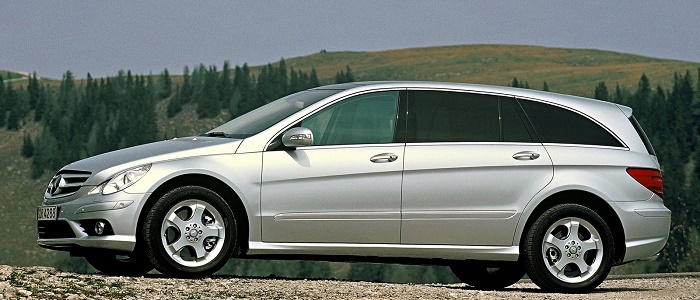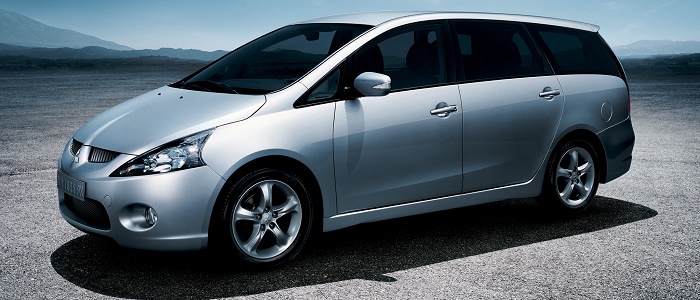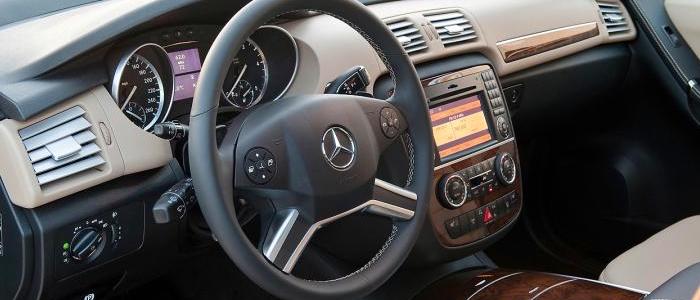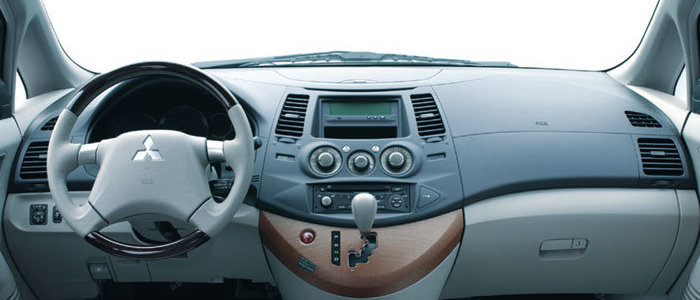Compare two cars
Compare any two cars and get our Virtual Adviser™ opinion
Dimensons & Outlines
Engine
3.0 OM642 DE30 LA HP
Performance (manual gearbox)
Performance (automatic gearbox)
Expenses
Virtual Adviser's™ opinion
Two significantly similar cars, no doubt about that. Still, each one has something different to offer. Having both cars powered by diesel engines and utilizing the 5-door MPV body style within the same 'MPV' segment, the only major difference here really is their wheel drive configuration (rear for the Mercedes Benz and front in the case of the Mitsubishi). The first one has a Mercedes Benz-engineered powertrain under the hood, a 6-cylinder, 24-valves 224hp unit, while the other one gets its power and torque from a 4-cylinder, 16-valves 136hp engine designed by Volkswagen.
SafetyUnfortunatelly, neither of the two vehicles was submitted to the European New Car Assessment Programme (Euro NCAP) testing. This makes it virtually impossible for me to pick one over the other and I'm generally against buying such cars as the safety should really always come first. That aside, let's consider some other aspects which affect safety. Both vehicles belong to the mpv segment, which is generally a good thing safety-wise, but that fact doesn't break the tie between the two cars.
ReliabilityReliability is not the best thing to consider on the make level, but it is worth mentioning that Mitsubishi does have a slight advantage, at least on all of the models level. These are the official statistics, while our visitors describe reliability of Mercedes Benz with an average rating of 4.3, and models under the Mitsubishi badge with 4.6 out of 5. Some independent research have also placed R as average reliability-wise, and Grandis is more or less at the same level.We should definitely mention that owners of cars with the same powertrain as the German car rank it on average as 4.5 out of 5, exactly the same as the other one.
Performance & Fuel economyMercedes Benz is undoubtly more agile, reaching 100km/h in 2.1 seconds less than its competitor. In addition to that it accelerates all the way to 222 kilometers per hour, 27km/h more than the other car. When it comes to fuel economy an obvious choice would be the Japanese car, averaging around 6.6 liters of fuel per 100 kilometers (43 mpg), in combined cycle. That's 32% difference compared to the German car!
Verdict
Mitsubishi appears just a bit more reliable, although the difference is truly marginal. The most important thing when deciding between any two vehicles should always be safety, both passive and active. In this case though, it seems that both cars show similar levels of passenger protection all together, so that won't break a tie. But one thing that actually could is the performance, with Mercedes Benz outracing its opponent in any situation possible, making it better choice for boy racers. It does come at a cost though, and that's the fuel consumption... No mistake, whatever you decide here, but I'd still go for the Mitsubishi. In any case that's my personal view, built upon all the data available to me. What should decide here though is the way you feel about the two vehicles, and I hope you'll find my guidelines useful in the process. Also, you could use the oportunity to find out which car, everything taken into account, would be the perfect choice for you in the eyes of the virtual adviser™, among more than 12.000 different ones in our database.


































